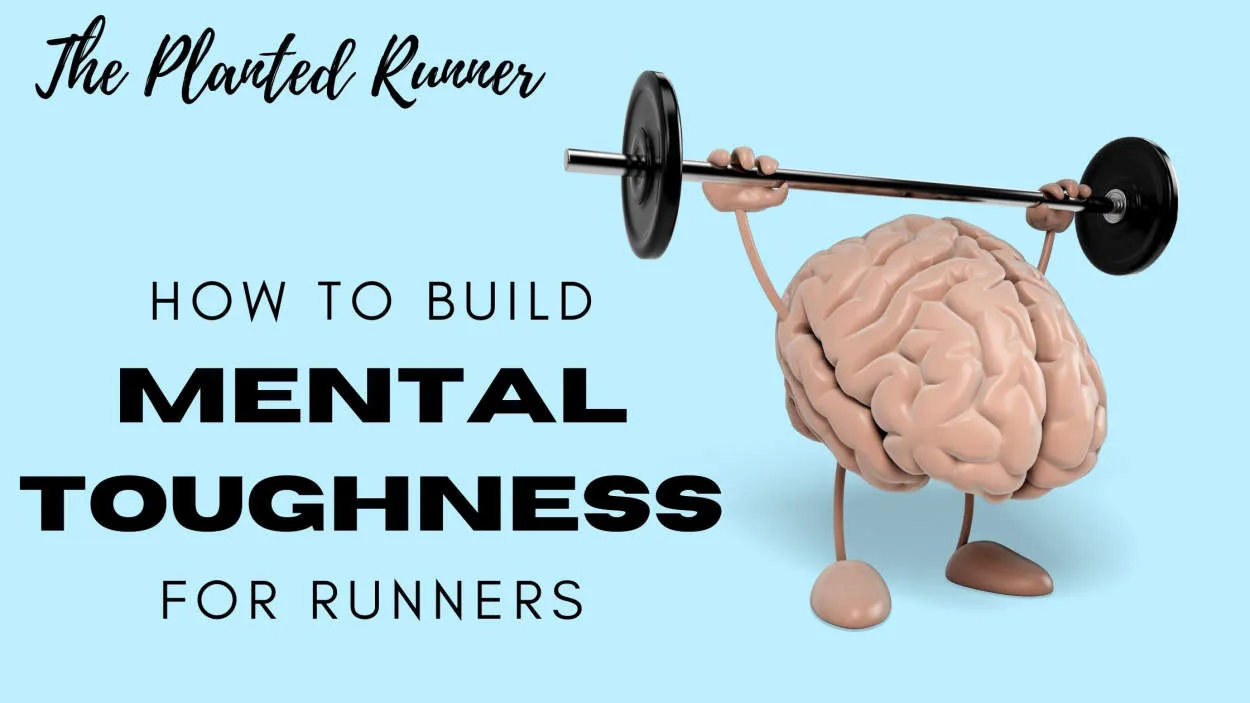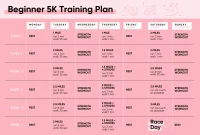Sports psychology plays a crucial role in helping athletes develop mental toughness. In this article, we will explore some effective tips and strategies that can enhance an athlete’s mental strength, enabling them to perform their best even under pressure.
Developing a Winner’s Mindset
In the world of sports, having a strong mental game is just as important as physical strength and skill. Athletes with a winner’s mindset are able to push past obstacles, stay focused under pressure, and consistently perform at their best. Here are some tips to develop a winner’s mindset in sports:
1. Set Clear Goals
Having clear and attainable goals is crucial for developing a winner’s mindset. Define what you want to achieve both in the short term and long term, and create a plan to reach those goals. This will provide you with a sense of direction and motivation.
2. Visualize Success
Visualization is a powerful technique used by many successful athletes. Take the time to imagine yourself performing at your best, overcoming challenges, and achieving your goals. Visualizing success can help build confidence and reduce anxiety.
3. Embrace Failure as a Learning Opportunity
Failure is a natural part of sports and should be seen as an opportunity for growth. Learn from your mistakes, analyze what went wrong, and make adjustments for improvement. Embracing failure with a positive mindset will help you bounce back stronger.
4. Stay Present and Focus on the Process
One of the key elements of a winner’s mindset is the ability to stay present and focus on the task at hand. Avoid getting caught up in past mistakes or future outcomes. Instead, concentrate on executing each step of the process to the best of your abilities.
5. Cultivate Resilience
Sports can be physically and mentally demanding, and setbacks are inevitable. Developing resilience is essential for maintaining a winner’s mindset. Build mental toughness by bouncing back from failures, staying positive in the face of adversity, and persevering through challenges.
6. Surround Yourself with Positive Influences
Your environment plays a significant role in shaping your mindset. Surround yourself with positive and supportive individuals who believe in your abilities. Their encouragement and belief can help you stay motivated and focused on your goals.
7. Keep Learning and Growing
A winner’s mindset is a lifelong journey of continuous improvement. Keep learning about sports psychology, mental techniques, and strategies that can help enhance your performance. Embrace opportunities for growth and never stop striving to become a better athlete.
Techniques for Managing Performance Anxiety
Performance anxiety is a common issue faced by athletes and can greatly impact their ability to perform at their best. Fortunately, there are several techniques that can help manage this anxiety and improve mental toughness:
1. Deep Breathing
Deep breathing exercises, such as diaphragmatic breathing, can help slow down your heart rate and relax your muscles. Take slow, deep breaths in through your nose and exhale slowly through your mouth. This technique can help reduce anxiety and promote a sense of calmness.
2. Visualization
Visualize yourself successfully performing in your sport. Imagine yourself executing the perfect technique, feeling confident and in control. Use all your senses to make the visualization feel as real as possible. Practicing this regularly can help build self-belief and reduce anxiety.
3. Positive Self-Talk
Replace negative thoughts with positive affirmations. Remind yourself of your capabilities and past successes. Use phrases like “I am prepared” and “I can do this.” Positive self-talk can boost your confidence and help you stay focused during critical moments.
4. Pre-competition Routine
Develop a pre-competition routine that incorporates relaxation techniques, visualization, and positive self-talk. Stick to the routine consistently, as familiarity can provide comfort and help reduce anxiety.
5. Seeking Professional Help
If performance anxiety persists and significantly affects your ability to perform, consider seeking help from a sports psychologist. They can provide specialized techniques, such as cognitive-behavioral therapy, to address anxiety and improve mental toughness.
By integrating these techniques into your training and competition routine, you can effectively manage performance anxiety and enhance your mental toughness. Remember, practice is key, and developing a strong mental game is just as important as physical preparation.
The Role of Visualization in Sports
Visualization is a powerful tool in sports psychology that can greatly contribute to enhancing mental toughness and overall performance for athletes. It involves creating vivid mental images of successful athletic activities or desired outcomes in order to train the mind and improve on-field execution. By harnessing the power of imagination, athletes can bring positive changes to their game and achieve a competitive edge. Here are some key aspects of visualization and how it can impact an athlete’s performance.
1. Mental Rehearsal
Visualization allows athletes to mentally rehearse their desired actions and strategies in a calm and controlled environment. By repeatedly visualizing successful movements, routines, or game scenarios, athletes reinforce muscle memory, improve their focus, and enhance decision-making skills. This mental rehearsal aids in reducing anxiety and builds confidence, as athletes gain a sense of familiarity and readiness for any situation that may arise during competition.
2. Goal Setting
Through visualization, athletes can effectively set and work towards achieving their goals. By visualizing the desired outcomes, athletes can align their thoughts and actions towards these goals. This process enables them to stay motivated, overcome obstacles, and maintain a positive mindset during training and competition. Visualization acts as a powerful motivator and creates a clear vision of the desired end result, helping athletes push through challenges and stay focused on their long-term objectives.
3. Cognitive Skills Enhancement
Visualization also aids in enhancing various cognitive skills crucial to sports performance. By vividly visualizing specific movements, techniques, or scenarios, athletes can improve their concentration, spatial awareness, timing, and coordination. This mental practice stimulates the brain’s neural pathways, improving the efficiency of transmitting signals from the brain to the muscles. As a result, athletes exhibit enhanced motor skills and an ability to execute movements with precision and accuracy.
4. Confidence Boost
Visualizing success and positive outcomes can significantly boost an athlete’s self-confidence. By consistently picturing themselves performing at their best, athletes develop a strong belief in their abilities. This confidence extends beyond the mental realm and translates into improved physical performance. Increased confidence allows athletes to take calculated risks, overcome self-doubt, and perform at their highest potential under pressure.
In summary, visualization plays a vital role in sports psychology by enhancing mental toughness, focus, and overall performance. It acts as a powerful tool for athletes seeking to improve their game and reach their full potential. By incorporating visualization techniques into their training routine, athletes can harness the power of their imagination to create positive changes and achieve success on the field.
Building Resilience in Competitive Environments
In the highly competitive world of sports, mental toughness plays a crucial role in determining success. Athletes who can effectively cope with pressure, setbacks, and intense competition have a significant advantage. Building resilience is key to developing the necessary mental toughness. Here are some tips to enhance your mental resilience in competitive environments:
1. Embrace Challenges
Instead of fearing challenges, see them as opportunities for growth. Embracing difficult situations allows you to develop problem-solving skills and adapt to changing circumstances. It also builds confidence in your ability to overcome obstacles.
2. Cultivate a Positive Mindset
Positive thinking is a powerful tool in building resilience. Train your mind to focus on solutions rather than dwelling on failures or setbacks. Adopting a positive mindset increases motivation, enhances decision-making, and improves overall performance.
3. Set Realistic Goals
Setting achievable goals helps maintain focus and boosts confidence. Break down larger objectives into smaller, manageable steps. Celebrate each milestone reached, as this reinforces resilience and self-belief.
4. Practice Self-Care
Physical and mental well-being are fundamental to resilience. Prioritize proper nutrition, regular exercise, and sufficient rest. Engage in activities outside of your sport to maintain balance and reduce stress.
5. Learn from Failure
Failure is inevitable in sports, but it’s how you bounce back that truly matters. Instead of dwelling on past mistakes, analyze them objectively and use them as learning opportunities. Learn to adapt, grow, and become more resilient with every setback.
6. Build a Support Network
Having a strong support system can contribute significantly to resilience. Surround yourself with positive and supportive individuals who inspire and motivate you. Seek guidance from coaches, mentors, or sports psychologists to enhance your mental resilience.
By implementing these strategies, athletes can build resilience and develop the mental toughness required to thrive in competitive environments. Remember, building resilience is an ongoing process that requires dedication and practice. With a resilient mindset, challenges become stepping stones to success rather than barriers.
Learning from Setbacks and Losses
In the world of sports, setbacks and losses are inevitable. However, it is how athletes handle these challenging moments that truly determines their mental toughness. To excel in their respective fields, athletes need to embrace setbacks and losses as opportunities for growth and learning.
One of the key aspects of mental toughness is resilience. Athletes must understand that setbacks and losses are not indicative of their worth or abilities. Instead of dwelling on the disappointment, they should focus on bouncing back stronger. This requires a positive mindset, self-belief, and determination.
Reflecting on setbacks and losses is crucial for growth. Athletes should analyze what went wrong, identify areas for improvement, and develop strategies to overcome similar challenges in the future. This self-reflection helps them learn from their mistakes and adapt their approach accordingly.
Another essential aspect of developing mental toughness is the ability to stay focused amidst setbacks and losses. It is easy for negative thoughts and emotions to creep in after a defeat. However, athletes should practice resilience by redirecting their focus to the present moment and the road ahead. This helps maintain motivation and prevents setbacks from derailing their progress.
Furthermore, setbacks and losses can provide valuable lessons about perseverance and determination. Athletes who have experienced challenging moments are more likely to appreciate the importance of hard work and resilience. They learn to push through difficulties, stay committed to their goals, and emerge stronger on the other side.
In conclusion, setbacks and losses are integral parts of an athlete’s journey. Instead of viewing them as failures, athletes should embrace these moments as opportunities for growth and learning. By cultivating resilience, reflecting on their performance, staying focused, and using setbacks as stepping stones, athletes can develop the mental toughness required to achieve success in sports and beyond.
Conclusion
In conclusion, developing mental toughness is crucial for athletes to achieve peak performance in sports. By utilizing various strategies such as goal setting, visualization, positive self-talk, and relaxation techniques, athletes can enhance their mental resilience and overcome challenges. Incorporating sports psychology principles into training and competition can provide athletes with a competitive edge and ultimately lead to success.




